-
An Exploration of Enchantment: Egoyan Directs Così fan tutte
By Danielle D'OrnellasPosted in Cosi fan tutteBy Claire Morley, Associate Manager, Editorial
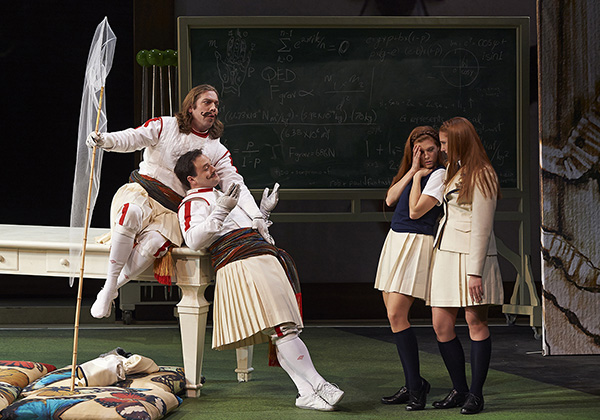
Setting the scene: In Mozart’s wry comedy, Così fan tutte, two soldiers, Ferrando and Guglielmo, are challenged to test the fidelity of their fiancées, sisters Dorabella and Fiordiligi. Ferrando and Guglielmo disguise themselves and woo the sisters, who, although perfectly aware they are being deceived, nevertheless grapple with strong emotions that make us all wonder: When it comes to the laws of attraction, how much are we really in control of ourselves?
It’s no secret that director Atom Egoyan’s experience lies in exploring characters and stories that are often psychologically probing and can be deeply dark (like his remounting of Salome at the COC this past spring). Although his Così will certainly pose some very serious questions by delving into a close examination of love, fidelity, and what happens when we are tested by these forces, Egoyan is thrilled to explore the comedy in Mozart’s sparkling and beautiful work.
First performed in 1790, Così is Mozart’s final collaboration with librettist Lorenzo da Ponte. Written at the height of the Enlightenment, both Mozart and da Ponte were well aware of the growing arguments and support for rationalism. But Così is not a diatribe against the abject nature of human emotional response; in fact, it is Così’s straddling of rationalism and emotion that Egoyan finds most scintillating.
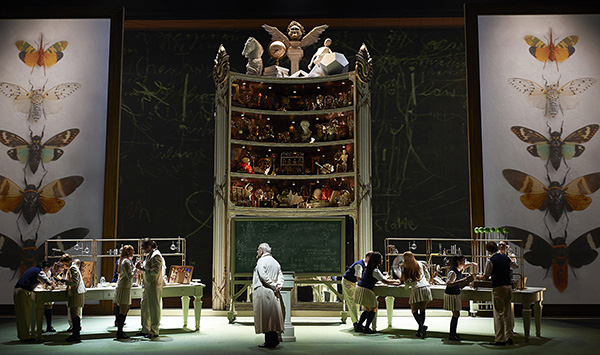
Egoyan has taken his cue from the opera’s subtitle, La scuola degli amanti (“The School for Lovers”) and has set the piece in a school, in which Don Alfonso instructs his students on the laws of attraction, and, as Egoyan puts it, “teaches them that human beings can be conditioned to have feelings. Così challenges the Enlightenment idea of optimism because it says that, as much as we may have been able to move away from notions of superstition and mystery coming out of religious and institutionalized places where people have been controlled, we ourselves will still always be controlled by the limits of our own emotions and feelings. Since the laws of attraction will not obey any reasonable force, their workings are completely arbitrary.”
Egoyan also argues that Mozart’s music itself challenges the Enlightenment rationale because “what Mozart does with his music is beyond words; Così’s arias can be piercingly emotional. He is saying that of course there is mystery – it’s at the basis of who we are.”
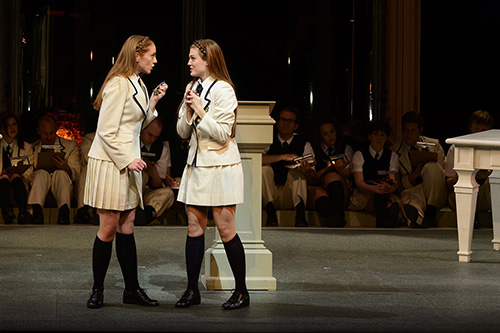
A frequent challenge for directors is how to overcome the overtly silly and sexist convolutions of Così’s plot, namely that sisters Fiordiligi and Dorabella are so easily duped by the men. Even as early as 1791, actor Frederick Schroder deemed the storyline “a miserable thing which lowers all women.” Egoyan has eradicated any sense of misogyny by creating a second wager between the two sisters (which will be visually established in the overture), allowing them to be fully aware, equal players in the game-playing that surrounds them.
Despite the fact that the double-wager is never made explicit in the libretto, Egoyan argues that Mozart’s score provides ample opportunity for new and nuanced interactions between the characters. “Mozart has a porousness that allows you to explore in a different way.” This is most evident in Così’s recitatives, where there is flexibility to pause, quicken or stretch out a particular phrase, made easier by the fact that the only instrumental accompaniment for these recits is the piano, which will be played by conductor Johannes Debus. He and Egoyan will work very closely to discuss phrasing and, in fact, Debus will “actually become another character, which we will address with the production’s design and lighting.”
This close collaboration extends to the rest of the cast. Egoyan has requested extra roundtable time in advance of rehearsals in order to discuss his ideas, give the singers time to ruminate on them, and revisit them. “I don’t think there’s another production [of Così] that makes [Fiordiligi and Dorabella] so aware of what is happening, and I want to explore the emotional logic of that with the singers.”
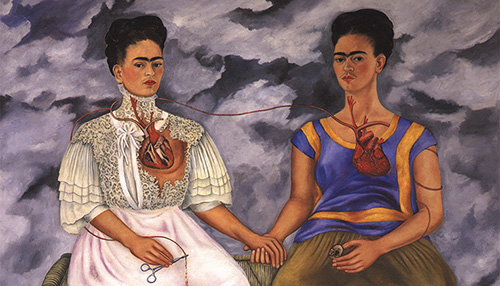
“Debra Hanson is creating an incredible set,” says Egoyan. It’s peppered with visual allusions to Frida Kahlo’s painting, “Las dos Fridas” (pictured above). “The first impression one has of the painting is of twin sisters, but ultimately it is a self-portrait of these two sides of Frida, with all these dualities represented. But rather than the painting setting the tone for the entire piece, the use of Kahlo’s work is more of a wry artifact.”
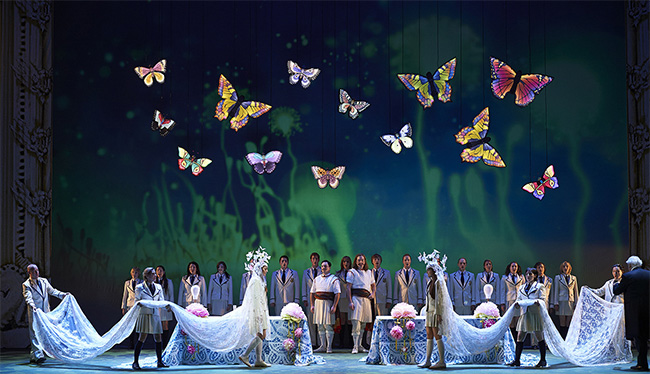
Hanson’s set contains more references to Kahlo’s painting, from the brooch (coincidentally, an explicit part of Così’s libretto), to the surgical scissors whose blades are precariously poised around a heartstring, to the large and intricate metal butterflies, which Egoyan describes as “the very symbol of freedom, but which can also be caught and pinned down.” And rather than being fixed in any one time period, Hanson’s costuming is entirely character-based. Egoyan says, “She is an exquisite artist. The way she lavishes these characters with her own sensibility is very energizing; her sense of flare, beauty, fun, grace and elegance is inspiring. It is so lovely to work with someone so attentive to a character-based interpretation. What we choose to wear in the morning says so much about what we are feeling that day, so what an incredible journey for a person to chart.”
Although Egoyan is exploring weighty themes in Così, he is adamant that the frothiness and fun of the opera be preserved. “When I look at darker, more austere productions of Così, they are often very interesting but there is something that I feel I’m missing, and that’s pleasure, and there’s a lot of pleasure to be had in Così.”
Così fan tutte runs until February 21. For more information and to purchase tickets, click here.
Photos: (top) (l-r) Robert Gleadow as Guglielmo, Paul Appleby as Ferrando, Wallis Giunta as Dorabella and Layla Claire as Fiordiligi; (middle) A scene from Così fan tutte; (middle) Layla Claire as Fiordiligi and Wallis Giunta as Dorabella. Photo by Chris Hutcheson; (middle) “Las Dos Fridas” painting by Frida Kahlo © 2011 Banco de México Diego Rivera & Frida Kahlo Museums Trust; (bottom) A scene from Così fan tutte. All images from the Canadian Opera Company's new production of Così fan tutte, 2014 and all photos by Michael Cooper unless otherwise stated.
